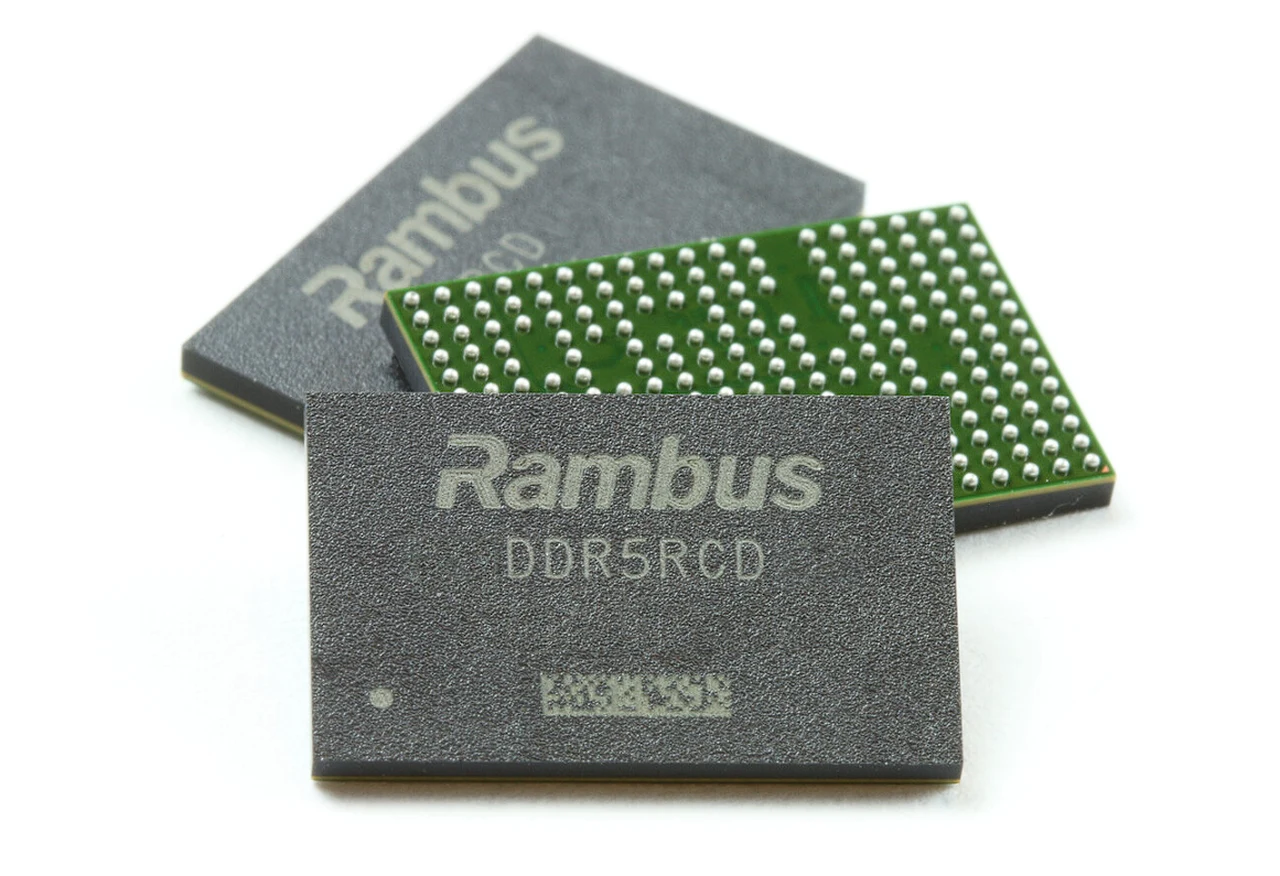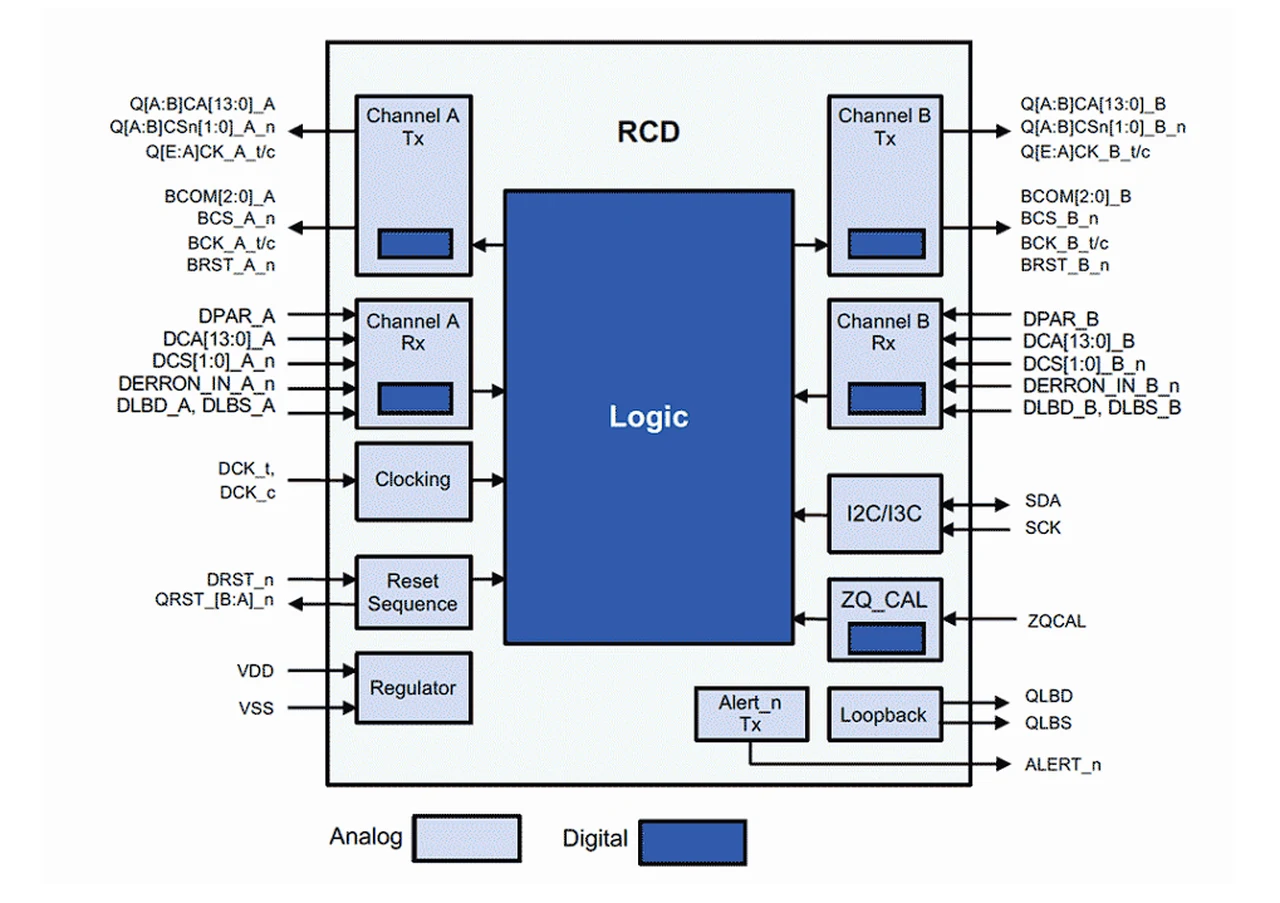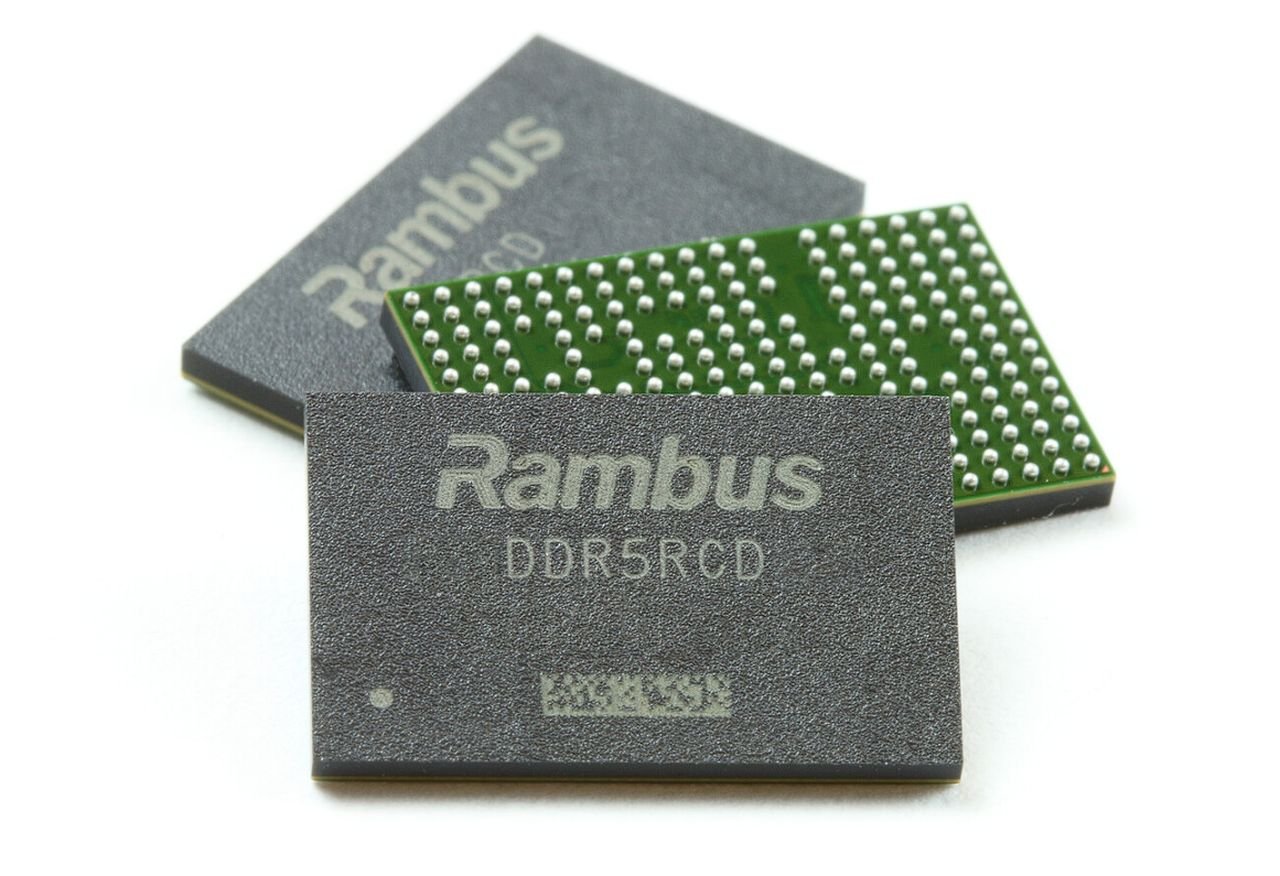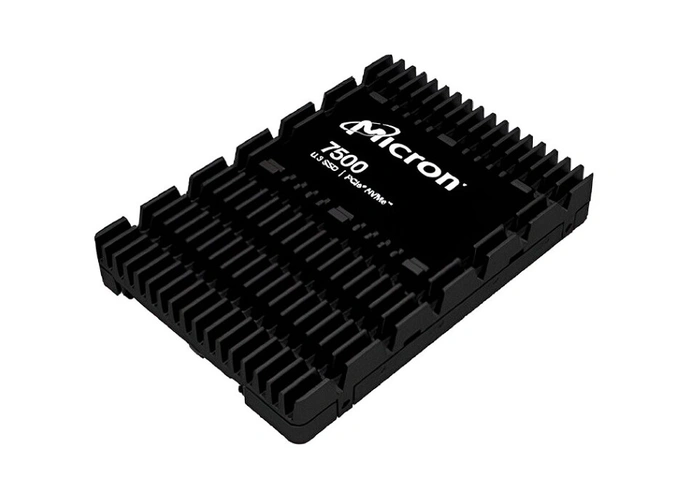
Rambus Inc., a company with a long history in high-performance memory, has recently unveiled a new component that is set to improve memory performance in advanced servers. This new product, the Gen 4 DDR5 Registering Clock Driver (RCD), is particularly important for applications that handle a lot of data, such as generative AI. As the year draws to a close, top manufacturers of DDR5 memory modules have started to test this new RCD.
The Gen 4 DDR5 RCD from Rambus is impressive, with a data rate of 7200 MT/s, which is a significant jump from the 4800 MT/s rate of current DDR5 modules. This 50% increase in memory bandwidth is crucial for servers that need to manage the growing demands of today’s data center workloads. The new RCD is not just a temporary fix; it’s designed to support future server platforms, ensuring that Rambus products stay at the forefront of technology. This forward-thinking approach shows Rambus’s commitment to innovation and their ability to foresee the needs of the market.
Features of the DDR5 RCD
- Supports data rates up to 7200 MT/s
- Supports clock rates up to 3600 MHz
- Supports double data rate (DDR) and single data rate (SDR) CA bus
- Supports two independent subchannels per RDIMM
- Supports two physical ranks per subchannel, four physical ranks total
- Supports up to 16 logical ranks (per physical rank) for high capacity RDIMMs
- Provides up to 4 clocks per subchannel: 1 clock per five devices
- Low Power 1.1V VDD
- 5 MHz (max.) I3C bus interface
With over thirty years of experience in the field, Rambus’s expertise shines through in the development of the DDR5 RCD. Their knowledge in areas like signal and power integrity is vital for the performance and reliability of these memory interface chips, which are increasingly important for AI-driven server performance.

The move to a 7200 MT/s data rate and the resulting 50% increase in bandwidth is not just a technical upgrade; it paves the way for new computing possibilities. Servers that are equipped with this improved bandwidth can handle data more quickly and efficiently, which is a significant step forward for server technology.
Rambus’s Gen 4 DDR5 RCD is a direct answer to the changing needs of advanced data center workloads. As applications like generative AI push the boundaries of current technology, this RCD is well-equipped to tackle these new challenges.
The introduction of Rambus’s Gen 4 DDR5 RCD marks a key moment for server technology. With its superior data rates, increased memory bandwidth, and preparation for future server platforms, the RCD is essential for the performance and efficiency of the next generation of AI-driven servers. Rambus’s continuous innovation and deep expertise in memory interface technology place them as industry leaders, ready to address the challenges of an ever-evolving technological world.
Filed Under: Gadgets News
Latest timeswonderful Deals
Disclosure: Some of our articles include affiliate links. If you buy something through one of these links, timeswonderful may earn an affiliate commission. Learn about our Disclosure Policy.



